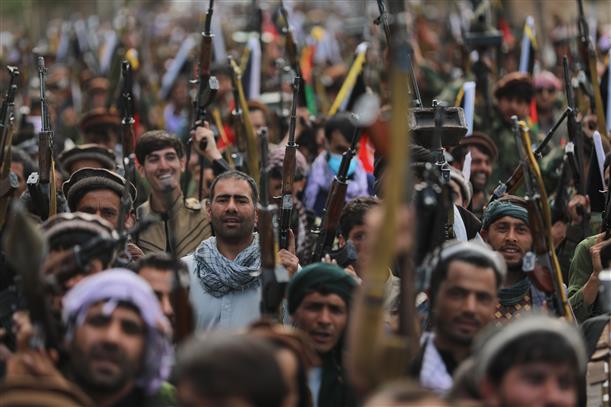Ongoing turbulence and escalating terror incidents, as well as the Afghan Taliban’s soft corner for TTP, hinder the prospective advancement in Pak-Afghan ties.
Pakistan remains at odds with Afghan leadership due to its alleged patronage of the insurgent group, Tehrik-e-Taliban Pakistan (TTP). Terrorism or support for terror groups from either of the countries cannot permit bilateral ties to prosper, as observed in the recent spate of cross-border skirmishes and escalating terrorism incidents since last year.
According to Pakistan, the TTP’s top command is located in Afghanistan, and the group’s attacks within that country increased shortly after the Afghan Taliban seized control of Kabul in August 2021. The Pakistani Taliban are now better equipped to carry out attacks across the porous mountain border between the two countries, as their ideological allies have gained a solid foothold in Afghanistan. Besides, it is now known that the TTP has access to the modern weaponry left behind by NATO and US forces.
Islamabad is intensifying its efforts to persuade the Taliban leaders in Kabul to restrain the TTP as the surge in militancy continues. Through backchannels and high-profile delegation visits, it is communicating to the Afghan Taliban that their failure to do so will negatively affect bilateral ties.
Hence, when Pakistan’s recently appointed special envoy to Afghanistan, Ambassador Asif Durrani, made his first visit to Kabul since assuming office, curbing the TTP topped the discussions’ agenda. The envoy met key UN officials, with whom he had substantive discussions on recognition of the Taliban regime, TTP’s sanctuaries, women’s rights, banking restrictions, frozen accounts, and the humanitarian crisis.
In his meetings with key Taliban leaders, they discussed the importance of political, economic, and cultural ties between the two countries. The Afghan side also acknowledged Pakistan’s role in providing refuge to millions of Afghans in need. The special envoy emphasized that the world should acknowledge the achievements of the Islamic Emirate of Afghanistan in controlling narcotics and establishing peace and order across the country. The meetings concluded on an optimistic note where the two sides pledged to address mutual concerns.
However, as Pakistan persists in urging the Afghan Taliban to completely dissociate from the TTP, little progress has been observed. Previous discussions have only led to temporary peace, which is then followed by more chaos.
The summer of 2022 saw an increase in unrest in Khyber Pakhtunkhwa despite the TTP’s unilateral announcement of an “indefinite ceasefire” in June. The presence of militants in the province increased significantly; they established checkpoints, demanded fees from passengers, abducted police and army personnel, and assassinated government officials, and political and tribal leaders who opposed them. One year after the Taliban took control of Afghanistan, in August 2022, there was a 51% increase in terrorist attacks in Pakistan, with more than 75% of them occurring in Khyber Pakhtunkhwa. The police chief for the province has revealed that 105 officers were killed in 151 different incidents during the year.
In the aftermath of the Peshawar and Karachi attacks, the government has escalated military and police operations, particularly in Khyber Pakhtunkhwa and Balochistan, another province bordering Afghanistan, where militant attacks are on the rise. However, Pakistani policymakers, including those within the powerful military, assert that these operations will prove insufficient as long as the Pakistani Taliban enjoy sanctuary in Afghan territory. They argue that the group can train fighters and plan attacks from their haven in Afghanistan; these militants can then infiltrate Pakistan, carry out their assaults, and retreat across the border.
Ironically, Pakistan initially believed that a sympathetic government in Kabul would enhance Pakistan’s security interests when it welcomed the Taliban takeover of Afghanistan in August 2021.
Should the Afghan Taliban continue to align with the TTP, relations between Afghanistan and Pakistan will likely remain strained. The potential for economic interconnection between the two nations is significant, but peace is a prerequisite for this relationship to flourish. Moreover, the Taliban must recognize that extremist ideologies serve as barriers to human advancement. Sustainable progress cannot be achieved unless the leadership on both sides adopts a more broad-minded and adaptable approach.




